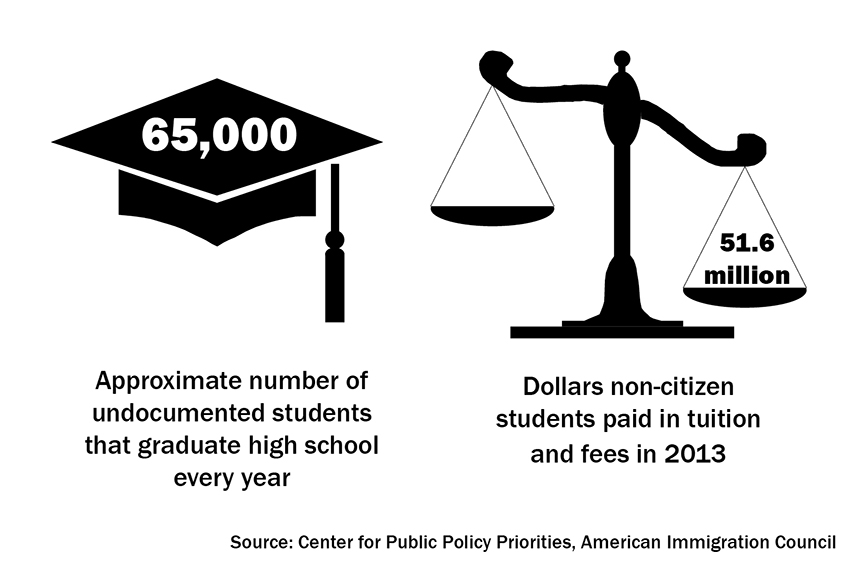Every year an approximated 65,000 undocumented students graduate high school but, due to the lack of their legal status, not all of them move on to attending college. In 2012, the Obama administration introduced DACA — Deferred Action for Childhood Arrivals — which helped students overcome the hurdles their legal status presented. They were able to obtain in-state tuition, work legally for higher wages and find jobs after graduation.
However, DACA-mented immigrants are in a state of panic after federal judge Andrew Hanen used a preliminary injunction to block the expansion of Obama’s DACA program. The expansion would allow millions of undocumented immigrants to obtain a valid driver’s license and a work permit. But since the program was brought to a halt, none of the eligible applicants have been able to obtain either. The expansion should be granted in order for immigrants to obtain insurance and a driver’s license, to be hired legally and above all to pursue higher education.
When DACA was first introduced, it only let immigrants under the age of 31 apply. Roughly 4.1 million immigrants were left out, including undocumented parents of American citizens, and they advocated for their right to apply for the program. On Nov. 20, 2014, Obama announced that the age requirement would be removed and undocumented parents would be given access to DACA applications. Texas, along with 25 other states, rushed to block this motion and in Feb. 2015 a federal district court approved the motion.
Since then, lower courts have put Obama’s new policy on hold. In January, the U.S. Supreme Court said it would grant a review of Texas’ challenge on Obama’s “deferred action” program. A decision will be made in June but, even if the preliminary injunction by Hanen is removed, DACA is still left to face the wrath of the current Republican presidential candidates.
Two of the three remaining Republican candidates running for presidency — Ted Cruz and Donald Trump — have spoken out against DACA and said they would remove the program if they took office. This would not only strip away people’s ability to work legally in the U.S. but also put students under DACA in a precarious situation.
If Obama’s deferred action were to be removed, then this would hurt not only Texas’ economy, but also the national economy. Non-citizen students paid $51.6 million in tuition and fees in the year of 2013, a number that has since grown. Students under DACA receive in-state tuition in Texas and many have said that if DACA were to disappear, so would their ability to stay enrolled in college.
“I know that if I didn’t have in-state tuition, there’s no way that I would have been able to pay,” said Katia Carmona, a psychology major from the University of Houston. “The reason I’m graduating is that I had in-state tuition.”
Politicians, lawmakers and our very own presidential candidates are still failing to see the benefits of welcoming immigrants. They also disregard how getting rid of DACA and other programs will burden our struggling economy even further. However, they still have a chance to put our nation of immigrants first by supporting DACA and programs similar to it.
Suazo is an international relations and global studies junior from Honduras. Follow her on Twitter @giselle_suazo.





















